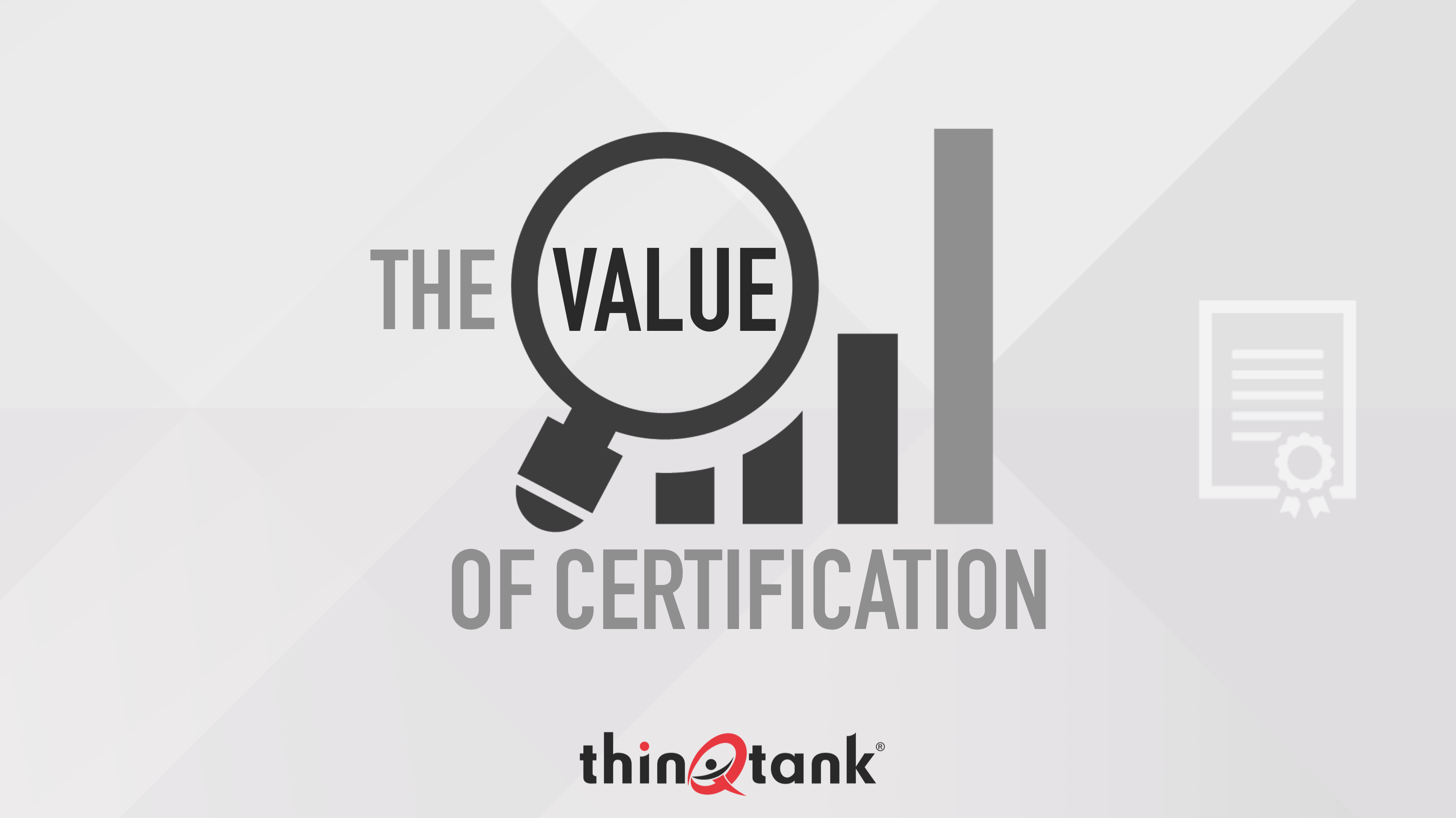The Value of Certification
How Will Getting Certified Help?
Our prospective and current learning participants and employers often ask the question “How will this certification help?” This seems to be true regardless of whether the candidate is working to obtain an entry-level certification or attempting to obtain a more advanced credential.
Not all career certification training is the same. If the certification training and learning environment is organized correctly, these certifications will benefit students and employers greatly and will be a true investment with tangible value not only to the student but to their employer as well. At thinQtank® Learning we understand that, as with any investment, the investors need to understand the return on investment before committing time, money, and resources.
Career Certifications and career training are no different. Certification seekers and investors need to know that their investment will pay off in the long term—that money spent for training, preparation, and exam costs, along with the time required to earn the credential, will result in a net gain at the end of the learning process.
Certifications offer numerous benefits and this brief document looks to examine those key benefits in more detail and outlines why our training specifically is a sound investment.
Building a Sound Relationship with Employees
We understand that the fear for many companies is that they spend time and money developing people, only to see them take those newly acquired skills to another company. However, we truly believe that training actually can increase employee retention when the training reinforces the value of the employee. Employees want to feel that the job they do is important to the success of the business and that the business is investing time and money in them to have the job done correctly and at the highest level.
Several industry surveys indicate that 40% of employees who receive poor job training leave their positions within the first year. They cite the lack of skills training and development as the principal reason for moving on. Figures vary, but it can cost as much as $2,500, depending on the position, to replace a frontline employee.
Nurturing employees to develop more rounded skill sets will help them contribute to the company. The more engaged and involved they are in working for your success, the better your rewards. Training is a retention tool, instilling loyalty and commitment from good workers. Staff looking for the next challenge will be more likely to stay if you offer ways for them to learn and grow while at your company. Don’t give them a reason to move on by letting them stagnate once they’ve mastered initial tasks.
Knowledge and Reskilling
The technology industry is constantly evolving, the IT industry is knowledge-driven and IT professionals must embrace an attitude of lifelong learning to keep up with changing (and new) concepts, skills, and technologies. It is absolutely vital for IT professionals to continually hone and test their knowledge and skills. This is often accomplished through multiple certifications, hands-on classroom learning and obtaining certification credentials.
Certifications and training, along with their associated preparation activities, are a great way to sharpen existing skills and take them to the next level. Through the process, IT professionals can identify both strong and weak areas of expertise and then work to an advanced and balanced skill set. They’re also a good way to learn new skills in areas where one may have only limited hands-on experience.
In addition, many professionals and organizations use the certification process as a reskilling tool to expand value to employers in today’s ever-shifting technological landscape. Employers rely on certifications because they provide a reasonable assurance that the credential holder possesses the skills and qualifications necessary to do the job required with minimal on-the-job training or hand-holding.
Standard of Quality
All certification programs contain some type of assertions or statements regarding a minimum standard for the information, concepts, skills and technologies that credential holders know and must master.
Many certifications must also be renewed every two or three years, either by taking a current certification exams or through continuing education credits, to keep knowledge and skills up to date.
Some organizations seek ANSI/ISO/IEC 17024 accreditation. This designation validates that the certifications offered meet quality and compliance standards. As an example, the Cisco CCNA and CCNP for Security and Routing & Switching certifications are ANSI/ISO/IEC 17024-accredited, as well as certs from the Global Information Assurance Certification (GIAC) program, the Information Systems Audit and Control Association (ISACA), and (ISC)2, among others.

Questions? We would love to hear from you!
Call us at: 855-TO-THINQ (855-868-4467)
Email us at website@thinqtanklearning.com

